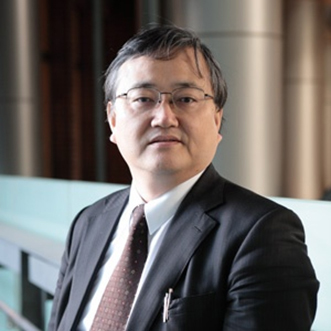The fourth IASTED Asian Conference on
Power and Energy Systems
AsiaPES 2010
Innovative Smart Grid Technologies for Sustainable Power and Energy Systems
November 24 – 26, 2010
Phuket, Thailand
KEYNOTE SPEAKER
A Large Scale Integration of Renewable Energy Sources into Smart Grids in Japan
Abstract
In recent years, global warming, energy saving, and energy security have become major issues. As a result, large scale development of renewable energy sources such as wind and photovoltaic (PV) power generation is planned for the near future. However, reliance on renewable energy sources may cause problems in power systems operations, such as an excess energy from PV power generation, frequency fluctuations, and distribution voltage increases.Smart grid is a new and better approach to these future power systems, enabling us to resolve the issues in power systems operations through the use of information and communication technology (ICT). This presentation introduces the concept, features, and challenges associated with the realization of Smart Grid, especially when the penetration of renewable energy sources is extensive. Six technological features of a Japanese smart grid will be presented.
Battery Energy Storage System (BESS) is a well known and effective technology to solve problems in power systems operations. Because of the high cost of BESS, it is preferable to maintain as small an installation capacity as possible. To do so, an appropriate control method and ideal location of the BESS in the power system should be determined. The output suppression controls of PV and wind power generations are proposed from the system viewpoint. Furthermore, the output control of controllable small-size generators in microgrids will also be considered for their contribution to load frequency control of power systems.
In this presentation, a number of Heat Pump Water Heaters (HPWHs) and Electric Vehicles (EVs), the energy efficient-use customer equipment with energy storage equipment, are considered as controllable loads for regulating the system frequency. The utilization of the customer equipment for power system control, e.g. the frequency regulation and the emergency control, while considering customer benefit or customer comfort, is one of the key elements in the concept of a smart grid in Japan.
It is essential to develop a novel control method of the controllable loads taking into account both the uncertainty of generating power caused by a large integration of renewable energy sources, and the uncertainty of regulating capacity of controllable loads caused by customer utilization.
Biography of the Keynote Speaker

Prof. Akihiko Yokoyama is a Professor in the Department of Advanced Energy at the University of Tokyo. He received his B.E., M.E. and D.E. degrees in the Department of Electrical Engineering from the University of Tokyo, Japan in 1979, 1981 and 1984 respectively. He was the Head of the Department of Electrical Engineering and the Chairman of the International Exchange Committee of the University of Tokyo. He has been a Vice-President of Central Research Institute of Electric Power Industry in Japan since 2005.
Prof. Yokoyama has been participating in various academic activities. He was a TPC member of PSCC (Power System Computation Conference), a Vice Chairman of the Technical Committee of Protective Relay of the IEE Japan, an Executive Board member of the Power and Energy Society of the IEE Japan and the Chairman of the Membership Development Committee of the IEEE Tokyo Chapter. He has also been the Chairman of the Japanese National Committee of IEC TC8, the Vice Chairman of the Japanese National Committee of CIGRE and the Chairman of PES of the IEEE Japan Chapter.
Prof. Yokoyama's research interests are: power system planning, operation, control and analysis, deregulation, distributed generation, microgrid and smart grid.













